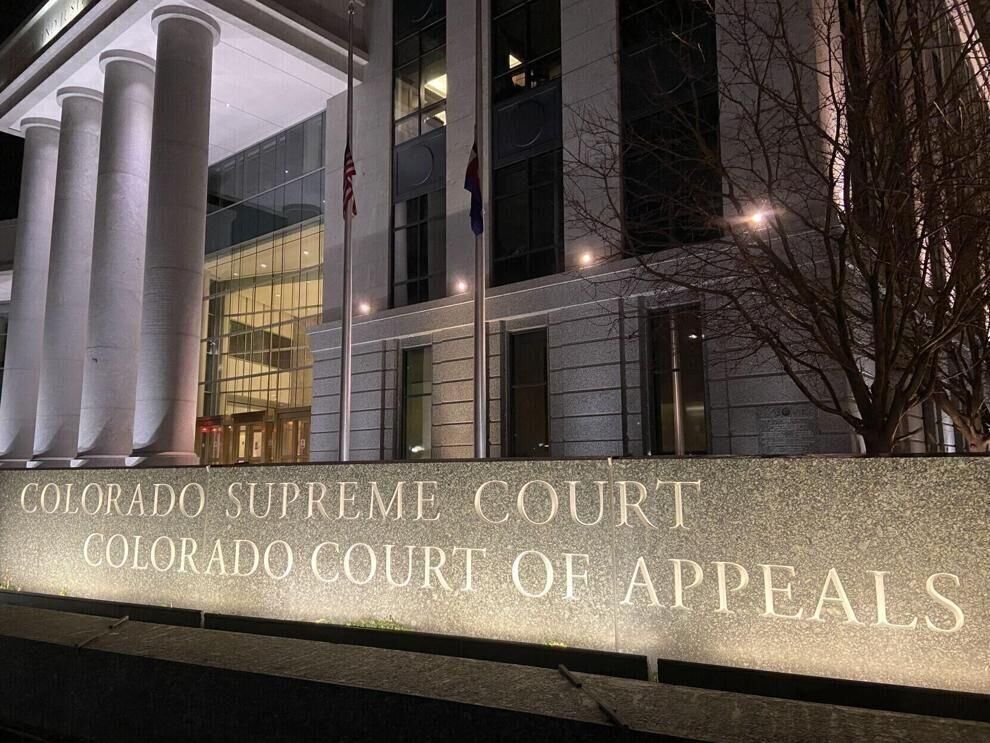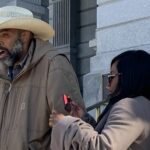By 2-1, appeals court reverses Denver murder conviction based on procedural blunder

A man serving a life sentence for a brutal Denver murder will receive a new trial after Colorado’s second-highest court ruled on Thursday that the original trial judge, prosecutor and defense attorney failed to notice a key witness was never formally authorized as an expert.
By 2-1, a panel of the Court of Appeals reversed the murder conviction of Pete Paul Martinez, who stabbed 77-year-old Lewis Easterday to death near Cheesman Park in 2016. Martinez admitted to the crime, but asserted he was not guilty by reason of insanity, insisting god had guided his actions. A court-appointed psychologist evaluated Martinez and found him sane.
However, despite both the prosecution and defense repeatedly raising the psychologist’s status as an expert at trial, District Court Judge A. Bruce Jones never formally accepted him as an expert according to the criminal procedure. As a result, the appellate panel’s majority concluded the oversight by Jones – and the lawyers involved – violated the rules of evidence in an obvious and harmful way.
The “central issue in this case was whether Martinez was sane at the time of the homicide, and Dr. (Charles) Harrison’s testimony was critical to the jury’s resolution of that issue,” wrote Judge Anthony J. Navarro for himself and Judge Timothy J. Schutz. “In matters as important as first degree murder charges, it cannot be too much to expect the prosecution to turn square corners.”
Judge Ted C. Tow III believed otherwise, pointing out that Harrison, who was initially appointed as an expert evaluator, was treated as an expert throughout the case and clearly possessed the credentials as an expert in sanity.
“Despite repeated characterizations of Dr. Harrison – by the court, by the prosecutor, and by Martinez’s counsel – as an expert, Martinez’s counsel chose not to object when Dr. Harrison began offering his expert opinion,” Tow wrote, adding that he could not condone such “level of incompetence” from the defense.
Police used surveillance footage and DNA matching to locate Martinez, who assaulted and stabbed Easterday in his car before fleeing. Martinez, who had a history of substance use and a prior suicide attempt, pleaded not guilty by reason of insanity and received a sanity evaluation from Harrison, with the Colorado Mental Health Institute at Pueblo.
Martinez reportedly believed god brought him and Easterday together and god used him to attack Easterday. Harrison, however, labeled Martinez’s description of his religious beliefs as “normal, routine” and did not find Martinez “ever exhibited a grossly and demonstrably impaired perception or understanding of reality.”
Under Colorado’s rules of evidence, non-expert, “lay” witnesses are allowed to testify on matters that are not based on scientific, technical or specialized knowledge. Other witnesses may be “qualified” as experts under the rules, which requires judges to consider the relevance and reliability of the testimony, as well as the expert’s credentials. Preventing “junk science” from reaching the jury is an underlying goal.
At Martinez’s trial, both sides spoke of Harrison and his report as expert evidence, and asked him questions that required expert opinions. But the prosecution never offered Harrison as an expert, Jones never determined whether Harrison was qualified, and the defense never caught the oversight.
On appeal, Navarro in the majority opinion acknowledged the possibility that Martinez’s failure to object at the time meant he had relinquished his ability for the appellate court to hear the issue. But Navarro concluded the lack of objection evidenced “neglect,” and not Martinez intentionally giving up any of his rights.
With both parties conceding Harrison offered expert testimony, the panel’s majority relied on the Colorado Supreme Court’s directive that such evidence pass through the “gate of admissibility” before a jury hears it. That did not happen with Harrison, and no objection was necessary for Jones to realize it was a mistake.
“The improperly admitted testimony from Dr. Harrison was the most significant evidence rebutting Martinez’s insanity defense,” Navarro wrote in the Feb. 16 opinion. “Therefore, the improper admission of Dr. Harrison’s testimony very likely prejudiced Martinez.”
Tow, writing in dissent, believed the panel should have refused to review Martinez’s claim because he failed to object at trial. Nevertheless, Tow found nothing in Colorado’s case law that requires trial judges to accept a witness as an expert in a particular style and, notwithstanding what occurred at trial, the parties had treated Harrison all along as an expert.
“Indeed, his involvement in the case began when the district court appointed him as an expert, and his role in the case never varied,” Tow wrote.
The case is People v. Martinez.














